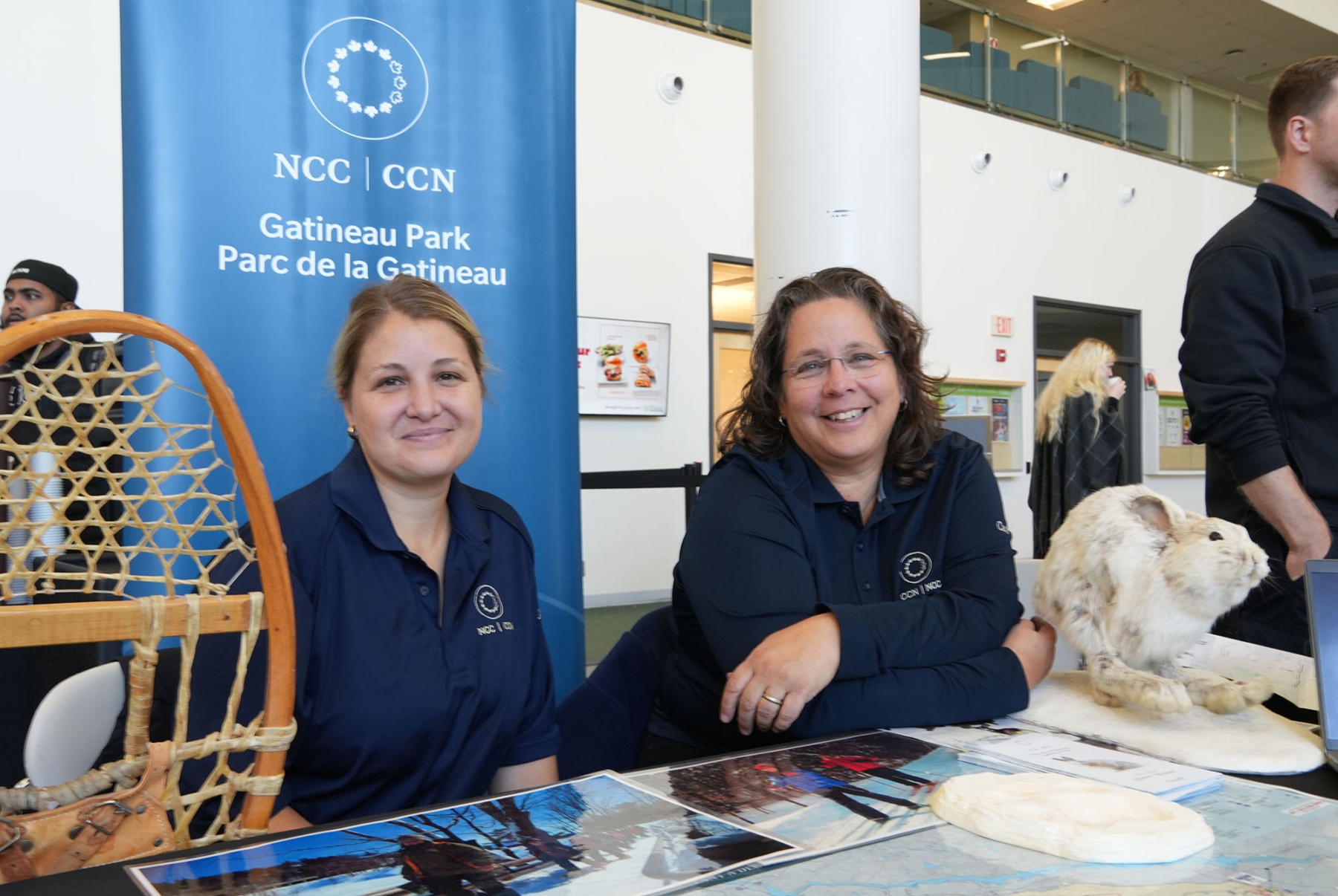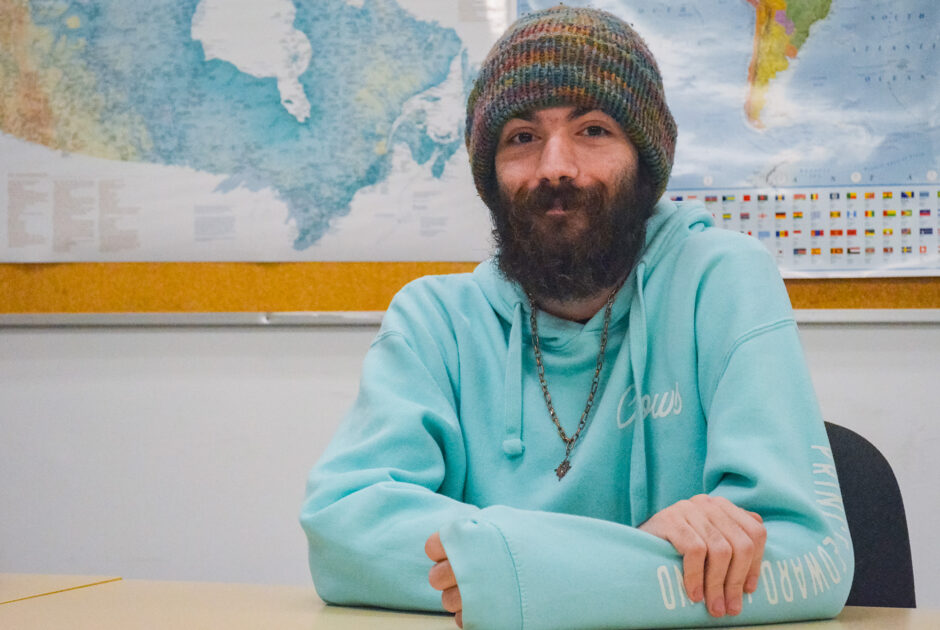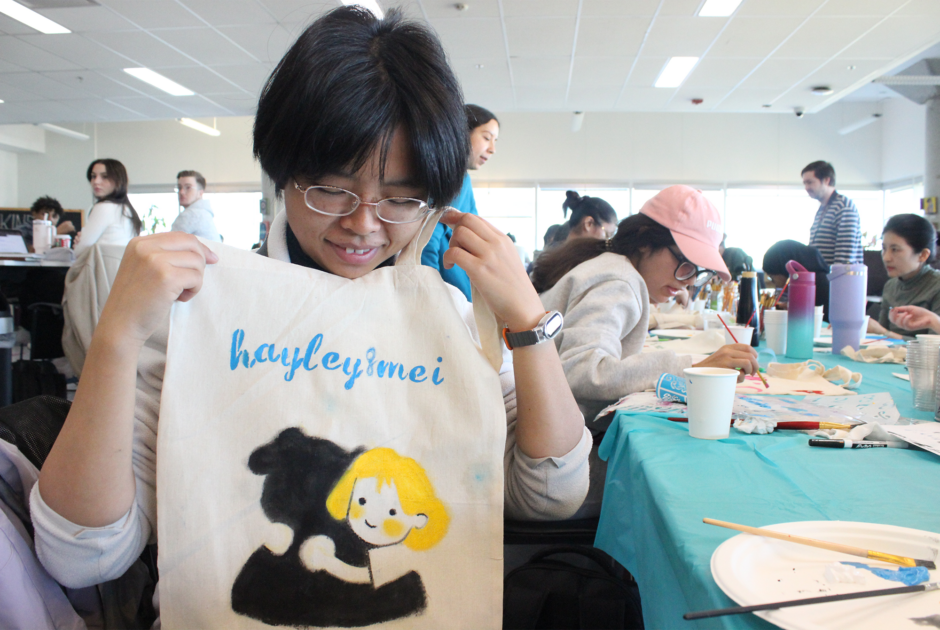Winter 101: Surviving Ottawa’s cold with hot tips

Last winter, Amanda Logan, events programmer for the Students’ Association, had a discussion with a colleague from Colombia about Ottawa’s harsh winters. ‘”No amount of Googling would help her understand just how cold it actually gets here in Ottawa,” Logan said with a chuckle.
The chat they had highlights the need for events like Winter 101 to help international students prepare for their first Canadian winter.
The Winter 101 event held by the SA and the International Education Centre on Oct. 17, had booths from OC Transpo, Ottawa Public Health, Ottawa Fire Department, the Ottawa Senators and the National Capital Commission for Gatineau Park.
Each booth had educational advice for students to understand how harsh Ottawa winters can get and how to prepare. Here are six tips for students on how to prepare for the Ottawa winter.
1. Check your weather app
Did you know that Ottawa Public Health says it is one of the coldest capitals in the world?
“The Ottawa winters are rough, they can be very bipolar,” said Alayna Defreitas, a level-1 advertising and marketing student at Algonquin College.
The colder temperatures in Ottawa can cause frostbite, hypothermia, slips and falls. Ottawa Public Health encourages students to check their weather app every day.
“Always check the weather, like weather apps, because everything can change from 12 to 3 p.m. and it can be a different temperature, ’cause it’s changing all the time,” said Mariana Catstro a level-3 student in biotechnology.
Ottawa Public Health says students have several numbers they can call for cold weather assistance.
You can call 2-1-1 for information about food banks and winter clothing, 3-1-1 for the closest shelter near you and 8-1-1 for non-emergency medical advice.
2. Dress warmly
Checking the weather app is good and all but if you’re not properly dressed the winter can feel frigid.
“If the winter gets really cold and you need to wear winter boots, just bring some extra shoes and place them in your locker, so you can be comfortable walking around the school,” said Laura Agarita a level-3 student studying biotechnology.
Ottawa Public Health advises people to wear waterproof boots, extra layers of socks, neck warmers, and to protect your ears with hats and fingers with gloves so you will not be vulnerable to frostbite.
“Definitely prepare for the cold, it gets pretty cold, so make sure you dress for the winter weather,” said Logan Cklund, a local student in level-2 studying in the Bachelor of Engineering (automation and robotics) program.
For students who may be struggling to afford winter clothes, the Champlain Health Line has several locations across Ottawa on their website for services. The programs and services provide anyone with free or low-cost clothing and household items.
3. Practice safety indoors
“We always see an increase this time of year of indoor house fires, because people are indoors more, they’re cooking and such,” said Barry Furukawia, a fire prevention officer with the City of Ottawa.
Furukawai said one of the major issues they see with indoor fires starting is people leaving their stove on and forgetting about it.
“Make sure you don’t leave things unattended while you’re cooking and try not to use candles,” said Furukawia.
4. Practice safety outdoors
The Ottawa fire department also has services for ice rescue.
“The only advice I would have on that one is to stay off the ice, stay warm, dress well and don’t put your tongue on anything metallic,” said Furukawia, “and know that putting out a fire is a voluntary act, you can always just call the fire department to handle the situation.”
5. Check your commute
“You can always research your commute, especially on our travel planner,” said Sandra Frenette Ryckman, a coordinator for outreach, events and charters with OC Transpo.
Ryckman said students can always check their social media pages as well to find out if there has been any detours or route closures during the winter.
“We also have staff that are available with our information department,” said Ryckman.
6. Have fun!
“Gatineau Park is always there to welcome you, there are activities that are accessible, easy, and fun,” said Rachel Pocket, a worker for the National Capital Commission. “You don’t need to be an elite athlete.”
“We have three guided trails in Gatineau Park that are there for hiking, so you do not need any equipment or a season pass, you can just go for a walk,” said Pocket.
The Gatineau Park also has free guided events for all students on weekends to go on snowshoe trails.
“You can always find information at libraries too for doing the trails in Gatineau,” said Pocket.








